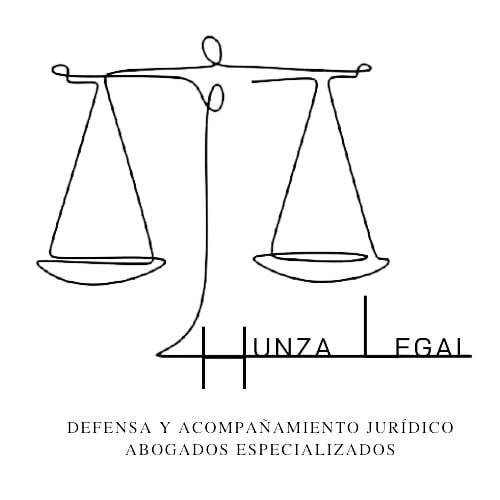Best Retirement Lawyers in Tunja
Share your needs with us, get contacted by law firms.
Free. Takes 2 min.
List of the best lawyers in Tunja, Colombia
About Retirement Law in Tunja, Colombia
Retirement in Tunja, Colombia, is governed by a set of national and local regulations that determine when and how individuals can access their pension or retirement benefits. The process is designed to provide financial security and stability for people who have reached a certain age or have completed the necessary years of work contributions. Most commonly, retirement benefits in Tunja are facilitated through national social security entities like Colpensiones and private pension funds, ensuring that retirees receive monthly payments based on their work history, salary, and total contributions. Local offices in Tunja assist with paperwork, resolving issues, and guiding residents through retirement proceedings.
Why You May Need a Lawyer
Navigating the retirement process in Tunja can be complex. People often require legal assistance for various reasons. Common situations include discrepancies in employment histories, disputes over contribution records, denial of retirement benefits, issues with transferring benefits from private to public pension funds, or understanding eligibility for special early retirement programs. Legal experts play a crucial role in helping individuals appeal unjust decisions, clarify complicated regulations, or plan their retirement strategy efficiently. Lawyers can also assist with securing disability pensions if applicable and ensuring that documentation is complete to avoid delays in access to monetary benefits.
Local Laws Overview
Retirement laws in Tunja, as in the rest of Colombia, are mainly shaped by national statutes such as Law 100 of 1993, which established the General System of Social Security in Colombia. The law sets the minimum retirement ages-currently 62 years for men and 57 years for women, with a minimum of 1,300 weeks of contributions for access to the public pension system, Colpensiones. Private pension funds have slightly different requirements and may offer alternative schemes like individual savings with solidarity pensions. Local authorities in Tunja oversee and ensure compliance with these regulations, including handling special cases for public sector employees, teachers, and police. It is also crucial to consider that certain professions or individuals affected by hazardous conditions may access early retirement under specific legal frameworks.
Frequently Asked Questions
What is the legal retirement age in Tunja, Colombia?
The legal retirement age in Tunja is 62 for men and 57 for women, as set by national law. Individuals must also meet the minimum contribution weeks, typically 1,300.
How do I check if I am eligible for retirement?
You should review your work and contribution history, usually available from your employer, Colpensiones, or your private pension fund. Eligibility is based on age and total weeks contributed.
What should I do if my contribution weeks are missing or not recognized?
You can request a correction or review with your pension entity. If your request is denied or delayed, consulting a lawyer familiar with labor and pension law is recommended.
Can I transfer my pension from a private fund to Colpensiones?
Transfers are permitted but subject to specific rules and timeframes. Legal advice is advisable, especially as nearing retirement age may limit your options.
Are there special retirement schemes for certain professions in Tunja?
Yes. Some public sector employees, teachers, police, and individuals in hazardous jobs may qualify for early retirement under special provisions.
What documents are needed to start the retirement process?
Typically, you will need your identification, employment history, proof of contributions, and any supporting documentation related to special pension rights or exceptions.
Can foreign nationals retire in Tunja, Colombia?
Foreign nationals can access retirement benefits if they have legally contributed to the Colombian pension system and meet all eligibility criteria.
What happens if my retirement request is denied?
You can appeal the decision with the pension authority. If the issue persists, legal action may be necessary, for which you should seek specialized legal counsel.
How long does the retirement approval process usually take?
The process can take several months, depending on the completeness of your documentation, the accuracy of your records, and the responsiveness of pension authorities.
Are there tax implications for retired individuals in Tunja?
Yes, certain pension income may be subject to taxes, but many retirees benefit from exemptions or special tax rates. A legal or tax advisor can clarify your specific situation.
Additional Resources
- Colpensiones (Administradora Colombiana de Pensiones): The main governmental body managing public pensions in Colombia. - Superintendencia Financiera de Colombia: Regulates private pension funds and oversees compliance. - Oficina de Atención al Ciudadano, Alcaldía de Tunja: Local municipality office providing guidance on pension and retirement matters. - Defensoría del Pueblo: National public advocacy office offering free legal advice for those needing assistance with pension rights. - Ministry of Labor (Ministerio del Trabajo): Provides regulatory information and support regarding labor and pension laws.
Next Steps
If you need legal assistance with retirement issues in Tunja, Colombia, start by gathering all your relevant employment and pension documentation. Consider scheduling an appointment with your pension fund representative or local pension office to clarify your situation. If you face obstacles, delays, or denial of benefits, consult a lawyer specializing in retirement and labor law. Legal professionals in Tunja can guide you through the appeals process, ensure your rights are protected, and represent you in formal proceedings if necessary. Seeking expert advice early can streamline the process and increase your chances of a favorable outcome.
Lawzana helps you find the best lawyers and law firms in Tunja through a curated and pre-screened list of qualified legal professionals. Our platform offers rankings and detailed profiles of attorneys and law firms, allowing you to compare based on practice areas, including Retirement, experience, and client feedback.
Each profile includes a description of the firm's areas of practice, client reviews, team members and partners, year of establishment, spoken languages, office locations, contact information, social media presence, and any published articles or resources. Most firms on our platform speak English and are experienced in both local and international legal matters.
Get a quote from top-rated law firms in Tunja, Colombia — quickly, securely, and without unnecessary hassle.
Disclaimer:
The information provided on this page is for general informational purposes only and does not constitute legal advice. While we strive to ensure the accuracy and relevance of the content, legal information may change over time, and interpretations of the law can vary. You should always consult with a qualified legal professional for advice specific to your situation.
We disclaim all liability for actions taken or not taken based on the content of this page. If you believe any information is incorrect or outdated, please contact us, and we will review and update it where appropriate.











